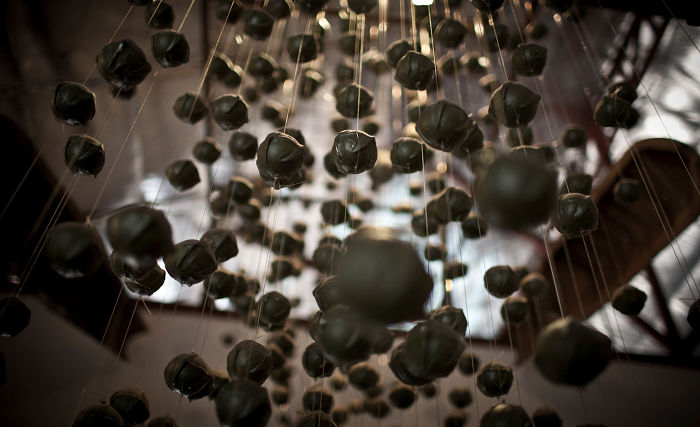Despite the international ban on cluster munitions, a report by the Dutch organisation PAX claims that 158 financial institutions have invested more than $28 billion (USD) in seven companies that produced this weapon between June 1, 2012 and April 8, 2016. PAX is a member of the Cluster Munition Coalition.
Royal Bank of Canada (RBC), Manulife Financial, Sun Life Financial, and CI Financial are among the financial institutions named in the report.
RBC aims to be a "responsible lender"
RBC is alleged to have invested $380 million in Orbital ATK and Textron, two of the companies singled out by PAX. In response to questions from The Insurance and Investment Journal, RBC sent a simple statement which neither confirmed nor denied the information revealed by PAX.
"As a responsible lender, RBC conducts a high level of due diligence before lending funds," reads the email to the magazine. "Our policy prohibits direct funding of equipment or materials used to manufacture cluster bombs (or cluster munitions). We are working to extend this policy to activities other than lending. "
Sun Life says it applies the UN's principles for responsible investment
Sun Life Financial, which is also alleged to have invested $62 million in Orbital, sent a response to our questions that was equally elusive.
"We base our investment decisions on a wide range of factors consistent with others in our industry. These factors include ensuring investments properly align with business objectives, policyholder obligations, sustainability and maintaining adequate liquidity," reads the reply from Sun.
"We have signed onto the United Nations supported Principles for Responsible Investment and we apply these principles to our investing activities. We also have reviewed our policies and we continue to invest with companies who follow the law in the jurisdictions where we do business."
Manulife shares its position
Finally, Manulife Financial, which PAX says either owns or manages $48 million in Textron and also owns $3 million in shares of the South Korean firm Hanwha, says its actions are "consistent with both the letter and spirit of the law" in that the insurer "does not invest in primary issuance (i.e. initial public offerings or direct bond offerings) from companies that manufacture cluster munitions."
However, the company does admit that it holds "publicly-traded securities in portfolios from some of the companies named in the report, primarily legacy investments or holdings in passive index funds."
As for CI Financial, the company told The Canadian Press that it no longer holds any shares in the American company Orbital ATK.
By way of background, Textron is one of the largest manufacturers of cluster bombs. According to research conducted by Human Rights Watch and Amnesty International, the Saudi Arabian-led military intervention that has been active in Yemen since March 2015 has deployed these types of weapons.
Encouraging the manufacture of prohibited weapons
"It is an absolute outrage that financial institutions are investing billions into companies that produce weapons which are banned under international law", says Suzanne Oosterwijk, author of the PAX report. "Canada has also banned these weapons. It is time for financial institutions to stop disregarding the international norm with these explosive investments into producers of illegal weapons that maim and kill civilians."
In a statement, the Cluster Munition Coalition suggests that this financing may be "construed as an attempt to assist, encourage, or induce” others to manufacture weapons which have been banned by the Convention on Cluster Munitions .
Civilian casualties in Yemen
In 2015 and 2016, 91% of the cluster bomb casualties in Yemen were civilians. Among these civilian victims, at least 22% were children.
The 158 financial institutions named by PAX come from 14 countries. The majority of the financial institutions (138) are based in countries that have not joined the 2008 Convention on cluster munitions. Of these firms, 74 are located in the United States, 29 in China, and 26 in South Korea.
However, 20 of the financial institutions which have invested in cluster bomb manufacturers are from countries that have signed the convention: Canada, France, Germany, Japan, Spain, Switzerland, and Britain.




